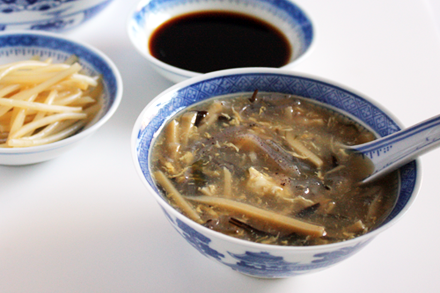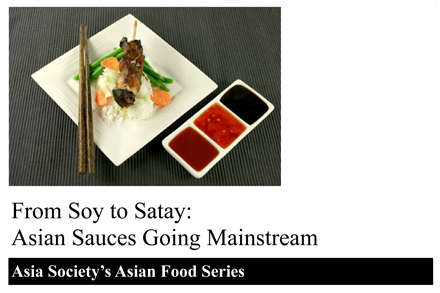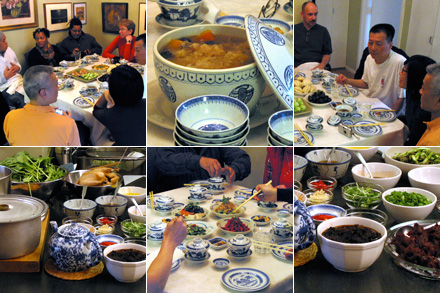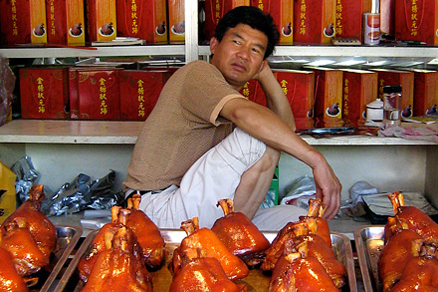Banning Shark Fins from Shark Fin Soup
Today (July 1st, 2010) a law prohibiting the possession, sale and distribution of shark fins goes into effect in the state of Hawaii. Hailed as a victory, albeit a small one, by conservationists, this law nevertheless is a major step in recognizing the need for government action to help save the shark. Sought after by the Chinese for millenniums, shark fins were a delicacy reserved for the elite, and served at important celebrations and banquets. With the recent rise of the middle class in China the demand for shark fins has skyrocketed. This Chinese fondness for shark fins is threatening the survival of the sharks. Although laws banning consumption of shark fins is a positive step in limiting shark fins trade we, as consumers, must also consciously make a choice not to eat shark fins if we were to succeed in preventing the shark's extinction.




 In her book
In her book 
 I routinely read Asian news reports on several Chinese language Web sites, and this Friday morning was no different. But on that morning as I read the alarming and ever expanding number of news reports on tainted Chinese dairy products, I started feeling a growing unease at my regular consumption of Chinese food products. After an announcement on September 21st by the Agri-Food and Veterinary Authority of Singapore that melamine was detected in the White Rabbit Creamy Candy from China, the candy was pulled off the shelves in many Asian markets. The Manufacturer finally announced a recall in China on Friday. As it happens White Rabbit Creamy Candy is one of my favorite candies. I’ve enjoyed them since my youth in Singapore and continue to purchase them here in New York’s Chinatown. After discarding my White Rabbit candies at home I wonder how I can keep my food supply safe.
I routinely read Asian news reports on several Chinese language Web sites, and this Friday morning was no different. But on that morning as I read the alarming and ever expanding number of news reports on tainted Chinese dairy products, I started feeling a growing unease at my regular consumption of Chinese food products. After an announcement on September 21st by the Agri-Food and Veterinary Authority of Singapore that melamine was detected in the White Rabbit Creamy Candy from China, the candy was pulled off the shelves in many Asian markets. The Manufacturer finally announced a recall in China on Friday. As it happens White Rabbit Creamy Candy is one of my favorite candies. I’ve enjoyed them since my youth in Singapore and continue to purchase them here in New York’s Chinatown. After discarding my White Rabbit candies at home I wonder how I can keep my food supply safe.




 Last Saturday
Last Saturday